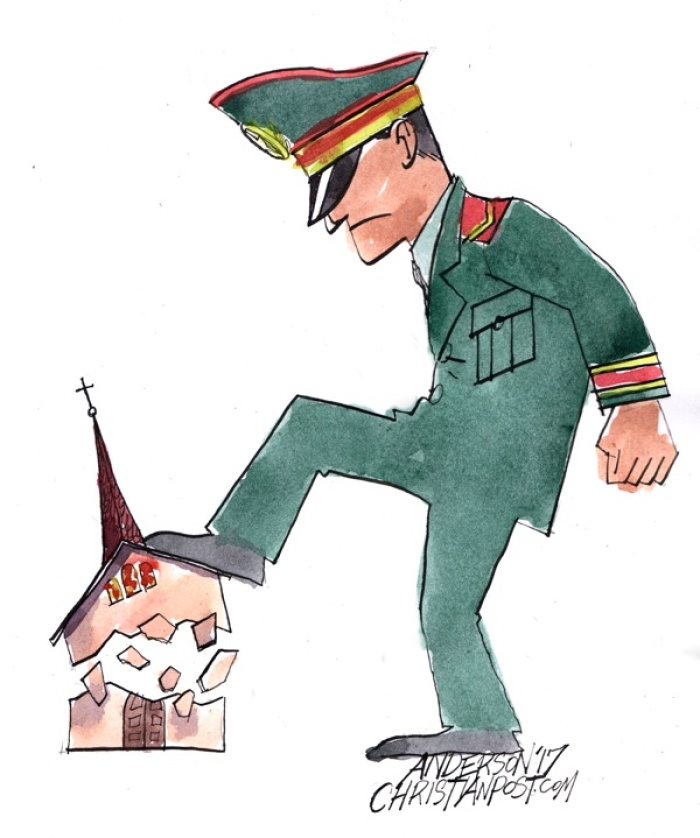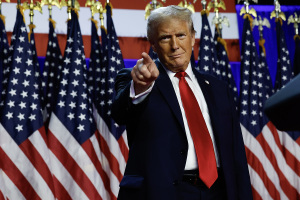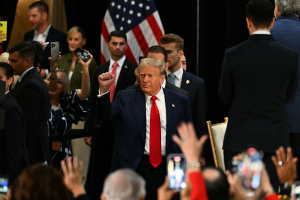The Truth About Religious Freedom in China

To foreign Christians, China portrays itself as a free country. But Chinese Christians know better. Earlier this month, a delegation from the World Council of Churches made a "historic" visit to China. There, they toured churches and celebrated news that within our lifetimes, China will be home to more Christians than any other nation on earth. And that's true.
The Council's secretary general expressed amazement at the government-approved churches he was shown, and at their reach among Chinese citizens of all ages. Present were representatives of the state-controlled denominations, the Chinese Christian Council, and the Three-Self Patriotic Movement.
But noticeably absent was anyone from China's booming house-church movement, which by some estimates accounts for 80 percent of Chinese Christians.
If this strikes you as fishy, congratulations—your sniffer is fully functional. The government-run churches World Council members were shown are the religious equivalent of China's notorious "Potemkin villages." These apartments and condo complexes, shopping malls and even cities are constructed by the state and state-backed speculators largely as a show for foreigners. They look good from a distance, but get closer and they're ghost towns—all façade and no substance.
Likewise, behind this façade of friendliness toward Christianity, China in fact has a much different policy toward the faith. Of the country's 60 million believers, the majority worship outside of the law. And when they're caught, the consequences can be severe.
Earlier this month, Chinese paramilitary police literally dynamited one of the country's largest evangelical churches, where some 50,000 people went to worship. Golden Lampstand Church in Shanxi province was allegedly disguised as warehouse for years, and has had prior run-ins with the law. Back in 2009, authorities confiscated Bibles from the church and imprisoned several of its leaders.
This time, they wanted to finish the job, and did so by filling the church's sanctuary with explosives and blowing it sky-high. Images of the building coming down are distressing, but they're a much more accurate picture of communist China's attitude toward Christianity.
Golden Lampstand was only the latest victim of this new war on Christians. In December, officials demolished a Catholic church in a nearby province, and President Xi Jinping's government has spent years tearing crosses from the steeples of unrecognized churches around the country.
Back in September, China passed new religious regulations to prevent so-called "extremism." An analyst from Open Doors described the regulations as part of the government's attempt to control and "Sinicize"—that is, render more Chinese—"every aspect of Christian life—be it culture, news, or religion."
And adding insult to injury, the government just days ago threatened the law licenses of several Chinese lawyers for defending fellow Christians who were arrested on trumped-up "cult" charges.
China, says the New York Times, is on "a campaign that reflects the Communist Party's longstanding fear that Christianity, viewed as a Western philosophy, is a threat to the party's authority."
This new persecution harkens back to a more brutal era, and bodes ill for our millions of brothers and sisters who refuse to worship as their government dictates. Our own government should speak up.
But first, the world needs to realize that the Chinese Communist Party's show of friendliness toward Christianity is just that—a show—one ultimately as empty as its shopping malls.
First published at BreakPoint.




























